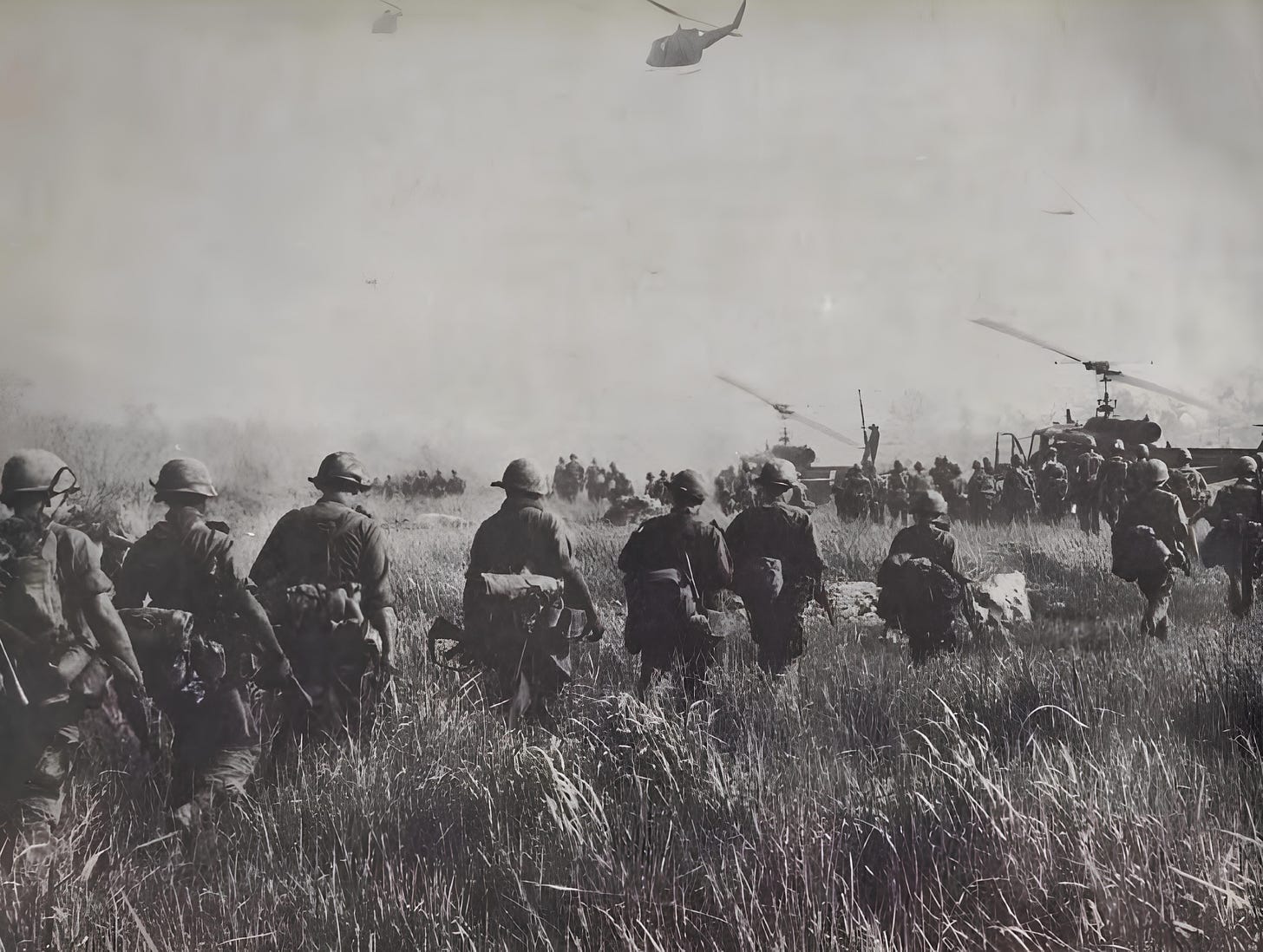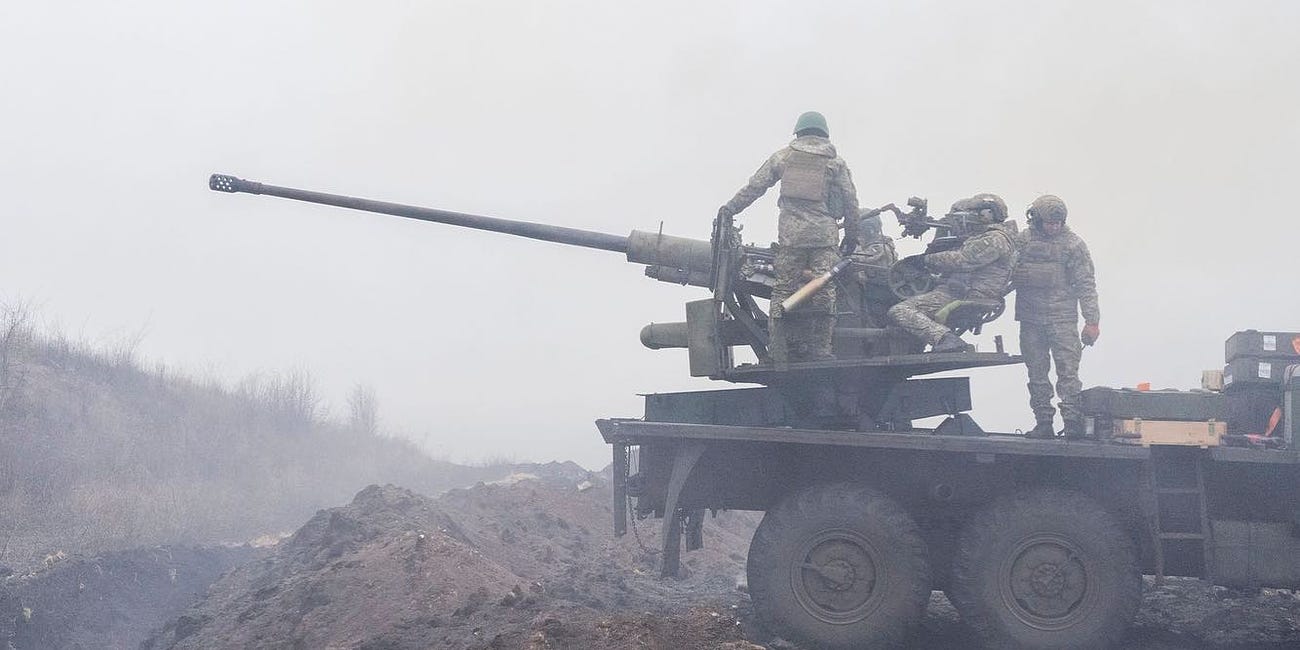A U.S. Army Brigade 'Mutinied' Twice in Three Years in Vietnam
The 196th Light Infantry Brigade had a bad reputation
This story originally appeared in Vietnam War.
A news article in the Aug. 26, 1969 The New York Times began with this chilling quotation from U.S. Army lieutenant Eugene Shurtz: “I am sorry, sir, but my men refused to go—we cannot move out.”
Shurtz was commander of Alpha Company of the 3rd Battalion, 21st Infantry Regiment, part of the 196th Light Infantry Brigade deployed to Vietnam with the Americal Division, part of III Corps.
On Aug. 25, the brigade was tasked with clearing North Vietnamese fighters from a series of bunkers and trenches in the Song Chang Valley near Chu Lai, 30 miles south of Danang.
Shurtz was on the radio with Lt. Col. Bobby Bacon, his new battalion commander. Bacon had just ordered Shurtz to lead his company into the heavily defended valley to retrieve eight bodies from a helicopter crash.
But after five days of fighting that had seen half of the company’s 120 men killed or wounded, Shurtz was reluctant to relay the order and even refused to take a head count of unwilling troopers, according to The New York Times article by Horst Faas and Peter Arnett.
“They won’t go, colonel, and I did not ask for a head count because I am afraid that they all stick together, even though some might prefer to go,” Shurtz said.
Back at the battalion command post, Bacon allegedly went pale. Was this mutiny?
If so, it wouldn’t be the last for the beleaguered brigade.
The 196th LIB was born in 1921 as the 196th Infantry Brigade, part of the U.S. Army Reserve’s 98th Division—a training unit until World War II, when the division’s mission was to defend the Hawaiian islands against invasion.
The 196th Infantry Brigade never saw combat and furled its flag after the war. Raised again in 1965 at Fort Devens, Massachusetts, the second incarnation of the 196th is renown as the brigade that mutinied not once but twice in only three years.
The August 1969, incident is legendary thanks to Faas and Arnett’s article, for which the authors were awarded a Pulitzer. Lesser known is a 1972 incident in which members of the renamed 196th Infantry Brigade (Separate), then based in Da Nang, apparently refused an order to assist South Vietnamese troops fighting a desperate last-ditch defense against invading North Vietnamese Army regulars.
It’s no wonder that the Army chose to deactivate the 196th LIB in an early round of post-Vietnam War draw-downs. Even if the reports of mutiny were untrue, the brigade had a bad reputation.
Not that its problems were unique. Reluctant troops were an issue Army-wide from 1968 through the end of the Vietnam War.
“In the summer of 1968 there were increasing indications that deliberate attempts were being made to undermine discipline and resist established authority,” the Army’s official history from 1969 noted. “Press attention focused on the potential for disruption from within the Army. Actions have taken the form of refusal to obey orders.”
Populist Vietnam War writer Keith Nolan in his 1987 book Death Valley described what he called the “refusal” at Song Chang. On his official website, the author admitted that the Song Chang incident was not an isolated one.
“In telling it straight, I had to acknowledge some depressing realities,” Nolan wrote. “There were many good soldiers in the 7th Marines and the 196th Infantry Brigade of the Americal Division, the units described in Death Valley.”
“During the 1969 summer offensive, the campaign recounted here, they fought the good fight against the tough, aggressive regulars of the North Vietnamese Army,” Nolan adds. “However, individual heroism was not enough. Morale as a whole was poor, even in some of the Marine units, and to quote the Brits … the Americal Division troops in particular were mostly ‘unwilling conscripts, badly trained, badly led, badly motivated.’”
Perhaps contributing to the unit’s poor morale were the conditions in and around Chu Lai—and heavy casualties. Stars and Stripes cited a litany of dangerous incidents.
On Aug. 4, a CH-47 Chinook and an Army observation plane collided, killing six. Americal Division troops hacking through the jungle around Aug. 11 uncovered a massive enemy camp complete with caves and barracks—and only recently abandoned.
Just 10 days later, a battle two miles from division headquarters killed 14 Americans and as many as 250 North Vietnamese. Then two UH-1 Huey helicopters were shot down on Aug. 19. Aboard one of the choppers from the 71st Aviation Company was Associated Press photographer Oliver Noonan, a friend of reporter Horst Faas.
It was Noonan’s body—and others’—that Alpha Company had been fighting to recover. By Aug. 25, they’d had enough, according to Faas and Arnett.
But Bacon, the colonel whose orders Alpha Company allegedly refused, says the unit’s reluctance in 1969 doesn’t count as mutiny or even a “refusal”—to use Nolan’s term.
“They were never issued a direct order,” Bacon says 35 years later at his home in Columbia, South Carolina. Bacon, now 70, has spent decades fighting what he thinks are misconceptions about the events of Aug. 25, 1969.
In other words, Shurtz was the only mutineer—the only one to refuse an order. And Shurtz, for his part, eventually overcame his reluctance to pass along Bacon’s order.
In a letter to Nolan about Death Valley, Bacon described the problems that dogged his 3rd Battalion—which included beleaguered Alpha Company. “We were lucky to marshal one battalion worth of artillery to support us. We operated in the Song Chang with no roads—and literally no reserves that could help us—given areas to operate in that were 2 to 3 times greater than we could possibly clear with any assurance.”
What’s more, Bacon says, Alpha Company was essentially leaderless on Aug. 25. Battalion commander Lt. Col. Eli Howard had died in the helicopter crash on Aug. 19. Bacon had just taken over for Howard, inspiring some resentment from officers he bypassed on the way to command.
Shurtz also was brand-new to his unit. Bacon says the lieutenant’s inexperience contributed to the problem. Wrote Bacon: “I am positive that had [Shurtz] served as platoon leader for three to four months—gotten some exposure—been able to know his men—and not thrown into such a God-awful situation, he would have gone a long way in the Army.”
But Shurtz never got the chance. According to Faas and Arnett, the soldiers of Alpha Company ignored Shurtz’s order until officers and sergeants from battalion arrived to motivate them. According to Bacon and not a few men from Alpha Company, they moved out as soon as the order finally was clearly given by Shurtz—which apparently happened soon after Bacon’s envoys appeared.
“We never at any time said we wouldn’t go down the hill,” Spec. Curtis of Alpha Company told The Pittsburgh Press on Sept. 2, 1969. “When Lt. Shurtz gave us a direct order, we started moving.”
In its issue of Sept. 8, 1969, Time accused Faas and Arnett of shoddy journalism. “Neither Faas nor Arnett saw or spoke to anyone in Alpha first hand … their report was plainly exaggerated.”
If it’s true, it wouldn’t be the last example of questionable journalism from Arnett. In March, 2003, Arnett was the last journalist in Baghdad still reporting for an American network.
As coalition forces closed on the city, every other reporter had fled. With some reports surfacing that the coalition had paused in the face of stiff resistance, Arnett granted an interview to state-controlled Iraqi television in which he claimed that “the first war plan has failed.”
Within days, every media outlet employing Arnett—including National Geographic, MSNBC and NBC—had fired him.
Perhaps the Army agrees with those who defend Alpha Company’s actions in the Song Chang Valley. In 1998, the Army saw fit to reactive that 196th Brigade at Fort Shafter, Hawaii.
A Reserve Component training brigade overseeing units in Hawaii, Alaska, Guam, American Samoa and Japan, the 196th Brigade has helped Reserve and U.S. National Guard units from across the Pacific work up for deployments to Iraq and Afghanistan, going a long way towards repairing its (perhaps unjustly) tainted reputation.
Read more:






